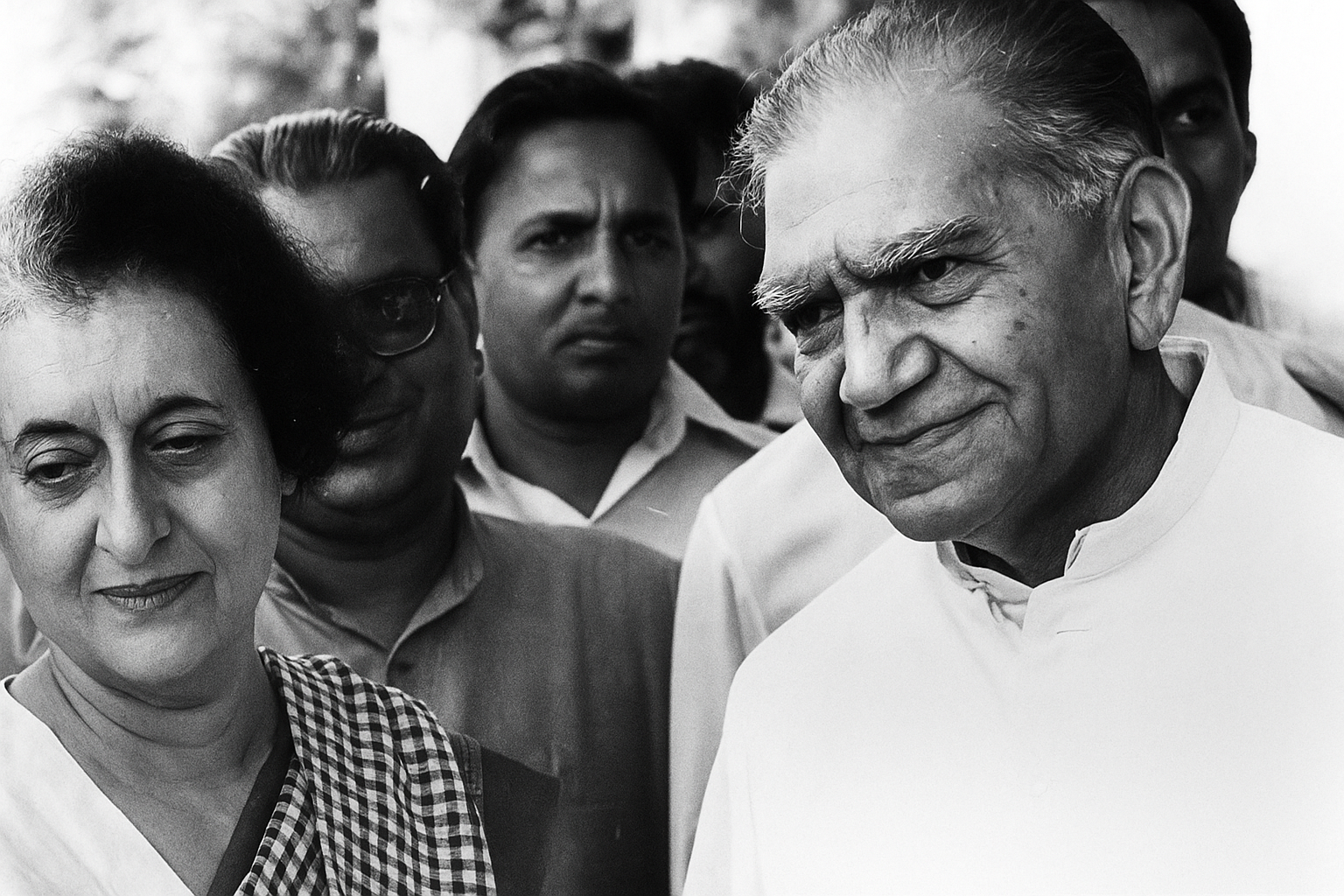



From 1975 to 1977, Prime Minister Indira Gandhi imposed an emergency, suspending civil liberties and ruling by decree. Triggered by political and economic crises, this period saw mass arrests and constitutional changes. It ended with her electoral defeat, leaving a lasting impact on Indian political landscape and constitutional safeguards

Copyright infringement not intended
Picture Courtesy: INDIAN EXPRESS
The Emergency from June 1975-March 1977 under Prime Minister Indira Gandhi, marked as one of the most controversial phases in Indian democratic history.
The imposition of the Emergency was not a sudden event but the culmination of several years of socio-economic and political turmoil.
Socio-Economic Crisis => The early 1970s were a difficult time for India. The country was dealing with the economic stress of the 1971 war with Pakistan, a severe drought, and the global oil crisis of 1973. This led to high inflation, unemployment, and widespread public discontent.
Political Unrest => Popular movements emerged across the country against corruption and misgovernance. The Navnirman movement in Gujarat and a student-led agitation in Bihar gained significant support. Veteran Gandhian leader Jayaprakash Narayan (JP) took leadership of the Bihar movement, calling for a "Total Revolution" against the central government. His rallies drew massive crowds, challenging the authority of Prime Minister Indira Gandhi.
Immediate Trigger => On June 12, 1975, the Allahabad High Court found Prime Minister Indira Gandhi guilty of electoral malpractice during the 1971 general election and invalidated her election to the Lok Sabha. This verdict gave the opposition a strong moral and legal basis to demand her immediate resignation.
Quoting threats of "internal disturbance" under Article 352 of the Constitution, President Fakhruddin Ali Ahmed declared a state of emergency upon the Prime Minister's advice on the night of June 25, 1975.
Suspension of Fundamental Rights => The government suspended fundamental rights, including the freedoms of speech, assembly, and movement. In the infamous ADM Jabalpur v/s Shivkant Shukla case, the Supreme Court upheld the state's power to suspend the Right to Life and Liberty (Article 21), a decision that was widely criticized and later overturned.
Press Censorship => The government imposed strict pre-censorship on newspapers. All news and articles had to be cleared by government-appointed censors before publication. Many newspapers protested by publishing blank editorial spaces.
Mass Arrests of Opposition => Almost all prominent opposition leaders, including Jayaprakash Narayan, Morarji Desai, Atal Bihari Vajpayee, and L.K. Advani, were arrested and detained without trial under preventive detention laws like the Maintenance of Internal Security Act (MISA). An estimated 1.12 lakh people were detained during the Emergency.
Constitutional Amendments => The government used its majority in Parliament, where the opposition was jailed, to pass constitutional amendments. The 42nd Amendment (1976) altered the Constitution by:
Forced Sterilization Program => As part of a controversial population control campaign driven by Sanjay Gandhi, the Prime Minister's son, a mass sterilization program was launched. The reports of forced sterilizations to meet government targets, leading to immense public anger. Over the two years, more than 10 million sterilisations were performed.
Indira Gandhi called for general elections in March 1977 and released political prisoners. The opposition parties united to form the Janata Party, which campaigned on a platform of restoring democracy.
The election resulted in a defeat for Indira Gandhi and the Congress party. The Janata Party came to power, with Morarji Desai becoming India's first non-Congress Prime Minister.
Strengthening Constitutional Safeguards => The Janata government passed the 44th Amendment in 1978, which introduced safeguards to prevent the future misuse of emergency powers:
A More Vigilant Judiciary => The Supreme Court's surrender during the Emergency was a low point. Post-1977, the judiciary, particularly the Supreme Court, adopted a more activist role in protecting fundamental rights, as seen in the Maneka Gandhi v/s Union of India case (1978), which expanded the interpretation of the Right to Life.
Rise of New Leadership => The Emergency gave rise to a new generation of leaders who had resisted it, including many who would dominate Indian politics in the following decades.
Value of a Free Press => The Emergency highlighted the critical role of a free and independent press in holding the government accountable and safeguarding democracy.
Increased Public Awareness => The experience made citizens and civil society groups more aware of the importance of civil liberties and the need to constantly guard against the concentration of executive power. It showed that it is extremely difficult to eliminate democracy in India when the people are aware.
Must Read Articles:
Emergency in India (1975-1977)
Impact of emergency provisions on center-state relations
Source:
|
PRACTICE QUESTION Q. Beyond the immediate political fallout, what were the long-term legacies of the Emergency on Indian politics and society? 150 words |




© 2026 iasgyan. All right reserved